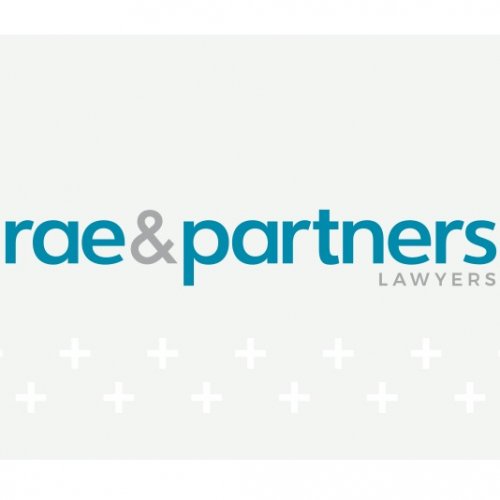Best Securities Lawyers in Devonport
Share your needs with us, get contacted by law firms.
Free. Takes 2 min.
List of the best lawyers in Devonport, Australia
About Securities Law in Devonport, Australia
Securities law in Devonport, as part of Tasmania and Australia at large, governs the regulation and trade of financial instruments such as stocks, bonds, and other investment products. These laws are designed to ensure transparency, fairness, and integrity in the financial markets while protecting investors from fraud and malpractice. The regulation of securities is primarily governed by national laws and frameworks established by bodies such as the Australian Securities and Investments Commission (ASIC), which oversees corporate governance and financial services to ensure compliance with the law.
Why You May Need a Lawyer
Engaging a lawyer who specializes in securities can be crucial for several reasons. Common situations include when making significant investments, where legal assistance can help in understanding terms and avoiding potential pitfalls. If you are facing allegations of securities fraud or have been a victim of investment theft, a securities lawyer can provide representation and help in seeking justice. Additionally, companies looking to issue new securities may require legal guidance to ensure compliance with regulatory standards and to draft necessary documentation.
Local Laws Overview
In Devonport, securities regulations are influenced by both state and federal laws. Key aspects include compliance with disclosure obligations for issuers, insider trading restrictions, and adherence to ethical standards in financial advising. The Corporations Act 2001 is a central piece of legislation that outlines the responsibilities of companies and individuals dealing in securities. ASIC is the primary regulatory body ensuring that these laws are followed, offering oversight and enforcement to maintain investor confidence in the financial market.
Frequently Asked Questions
What is the role of ASIC in securities regulation?
The Australian Securities and Investments Commission (ASIC) is responsible for enforcing laws related to securities and protecting investors against fraudulent practices. It oversees financial service providers to ensure they meet legal standards.
What constitutes securities fraud?
Securities fraud involves deceptive practices in the stock or commodities markets, including insider trading, manipulating financial statements, and providing false information to investors.
How can I verify an investment advisor's credibility?
You can verify the credibility of an investment advisor by checking their registration and license status with ASIC. Additionally, seeking testimonials and reviews from other clients can provide insights into their reputation.
What should I do if I suspect insider trading?
If you suspect insider trading, it is advisable to report your concerns to ASIC, which can investigate the situation further while keeping your identity confidential.
What is the Corporations Act 2001?
The Corporations Act 2001 is a federal piece of legislation that regulates company operations in Australia, including securities issuance and trading, focusing on ensuring fair and transparent practices in financial markets.
How do I file a securities-related complaint?
To file a complaint related to securities, contact ASIC with details of the issue. ASIC provides channels for lodging complaints and offers guidance on potential legal remedies.
Can international investors trade in Australian securities markets?
Yes, international investors can trade in Australian securities markets, but they must comply with local laws and regulations, including taxation obligations and disclosure requirements.
Is financial advice covered under securities law?
Yes, financial advising is covered under securities law. Financial advisors must adhere to professional standards and ensure their advice is in the best interest of clients.
What are the penalties for violating securities laws in Australia?
Penalties for violating securities laws can include fines, imprisonment, and revocation of licenses for individuals or companies found guilty of infractions like fraud or insider trading.
How can I safeguard my investments?
To safeguard investments, ensure you conduct thorough due diligence on all financial products and services, seek advice from registered professionals, and regularly review investment performance.
Additional Resources
For those seeking additional guidance or information on securities law in Devonport, consider reaching out to the following resources:
- Australian Securities and Investments Commission (ASIC)
- Financial Planning Association of Australia (FPA)
- Local legal aid services in Tasmania
- Devonport Chamber of Commerce for business-related guidance
Next Steps
If you require legal assistance concerning securities in Devonport, Australia, begin by consulting with a lawyer experienced in securities law. You may consider reaching out to local law firms with a specialty in financial regulations or utilizing legal referral services to find a qualified professional who can address your specific legal needs. It's important to prepare relevant documentation and understand your rights and obligations under Australia's securities laws to facilitate effective legal support.
Lawzana helps you find the best lawyers and law firms in Devonport through a curated and pre-screened list of qualified legal professionals. Our platform offers rankings and detailed profiles of attorneys and law firms, allowing you to compare based on practice areas, including Securities, experience, and client feedback.
Each profile includes a description of the firm's areas of practice, client reviews, team members and partners, year of establishment, spoken languages, office locations, contact information, social media presence, and any published articles or resources. Most firms on our platform speak English and are experienced in both local and international legal matters.
Get a quote from top-rated law firms in Devonport, Australia — quickly, securely, and without unnecessary hassle.
Disclaimer:
The information provided on this page is for general informational purposes only and does not constitute legal advice. While we strive to ensure the accuracy and relevance of the content, legal information may change over time, and interpretations of the law can vary. You should always consult with a qualified legal professional for advice specific to your situation.
We disclaim all liability for actions taken or not taken based on the content of this page. If you believe any information is incorrect or outdated, please contact us, and we will review and update it where appropriate.








